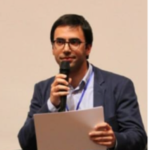
Debt financing of any project is well developed in Lebanon, because of the strong banking sector. But the risky nature of SMEs and in particular startups, makes it difficult for banks to grant them loans. Kafalat SAL – a financial organization facilitating access to finance for SMEs in Lebanon, has been supporting SMEs and startups access debt financing since the year 2000.
For this month’s Finance Friday session, Ralph Stephan – responsible for the Innovation & Energy Programs at Kafalat SAL, explained financing through debt. The session focused on the suitability of debt financing to a venture, debt de-risking tools such as Kafalat guarantees, and Kafalat loan process simulation.
Here are 10 tips to financing through debt
- Bootstrap before you seek other financing sources: When you start your venture with your own funds, you show future funders (friends, investors, banks) that you are serious about it, and willing to risk some of your savings towards it.
- Make sure debt is right for you: A loan needs to be paid back, no matter how much money (if any) the venture is generating. For certain startups this might mean additional stress on the founders to potentially deviate from their ideal growth strategy in order to start making money to repay the loan. For others, it might mean the boost they need to rocket launch into the market.
- Go bank shopping! Different banks have different strategies and target different clientele. If you get the rolled eyes treatment on your first attempt, try another bank, as their strategy and interest might be different from that first one.
- The bank will require a safety net. This is how they stay away from trouble: they need to make sure that, should your venture fail to generate enough cash to repay the loan, there’s another asset that can be liquidated to pay the loan back. Collateral can take the form of cash, property, or simply a personal commitment.
- Kafalat does not grant loans. Another safety net is the Kafalat guarantee which covers up to 75% of the risk of a loan granted by the banks to SMEs in Tech, Industry, Agriculture, Tourism, and Crafts. This guarantee is backed by Kafalat SAL.
- You will always remain liable to repay. A Kafalat guarantee will make it easier for you to get a loan by reducing the risk on the bank. But don’t forget that even after Kafalat covers your loss, you will still need to negotiate a repayment.
- Show how your project can succeed. The more you consider various market scenarios and how your venture could face them and come out on top, the better your chances are of getting financed. Be realistic in your estimates and projections.
- What’s in it for the bank? You can strengthen your file by offering to channel all your venture’s turnover though your borrowing bank or taking on further financial services the bank offers. Think of the bank as a long-term partner, and choose one that fits your venture’s style, market and culture.
- Lending market behavior shouldn’t stop you from trying. Perhaps the current market status makes it difficult to borrow, but this doesn’t mean it is impossible. Consider it a test for your patience and perseverance.
- Build relations. Good relations with your banker but also with your suppliers and other stakeholders can be crucial in getting the loan and beyond. Don’t forget that the human factor still plays an important role in business, and banking is no different.
About the author

Ralph Stephan is a Mechanical Engineer responsible for the Innovation & Energy Programs at Kafalat SAL, a financial organization facilitating access to finance for SMEs in Lebanon. He juggles between assessing the technical feasibility of renewable energy projects, and evaluating the plans of young and innovative start-ups, helping them get financed, and keeping their feet on the ground.
He worked with international engineering consulting firms in Sweden, France and Saudi Arabia, before falling for the Finance sector in Lebanon. In addition, he is an avid Toastmaster, and previously served as Area Director of Toastmasters Lebanon, a chapter of Toastmasters International, a 95 years old organization aimed at improving leadership and communication skills
He holds a Master of Science degree in Renewable Energy Engineering from the Royal Institute of Technology in Stockholm. as well as a Bachelor of Engineering from the American University of Beirut.
His motto is: “Impossible itself says I’m possible.” His LinkedIn profile is here.

Berytech organizes monthly #FinanceFridays – a program which aims to offer an opportunity to startups and SMEs for getting investment-ready, identifying the right channels of funding, and raising funds.








